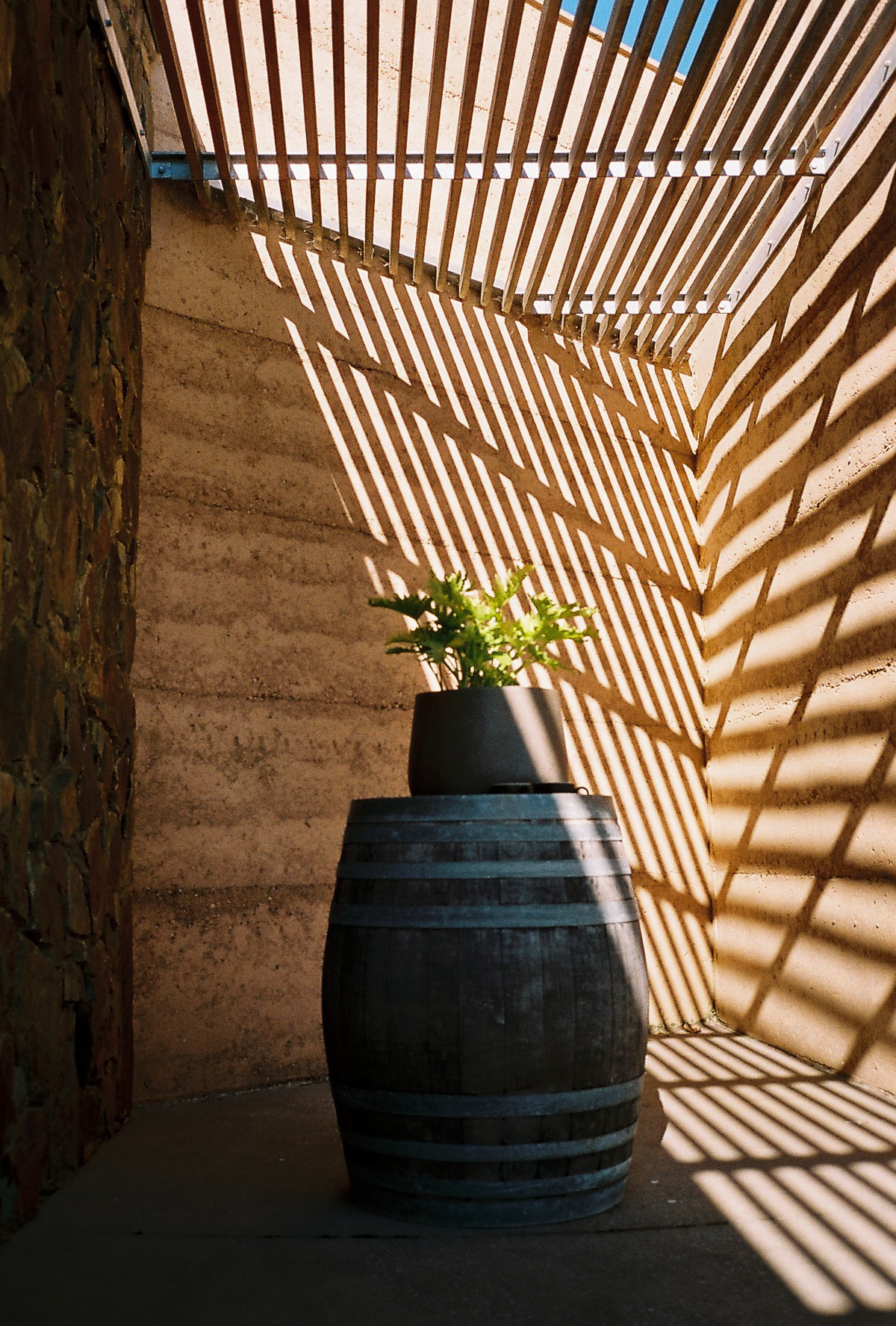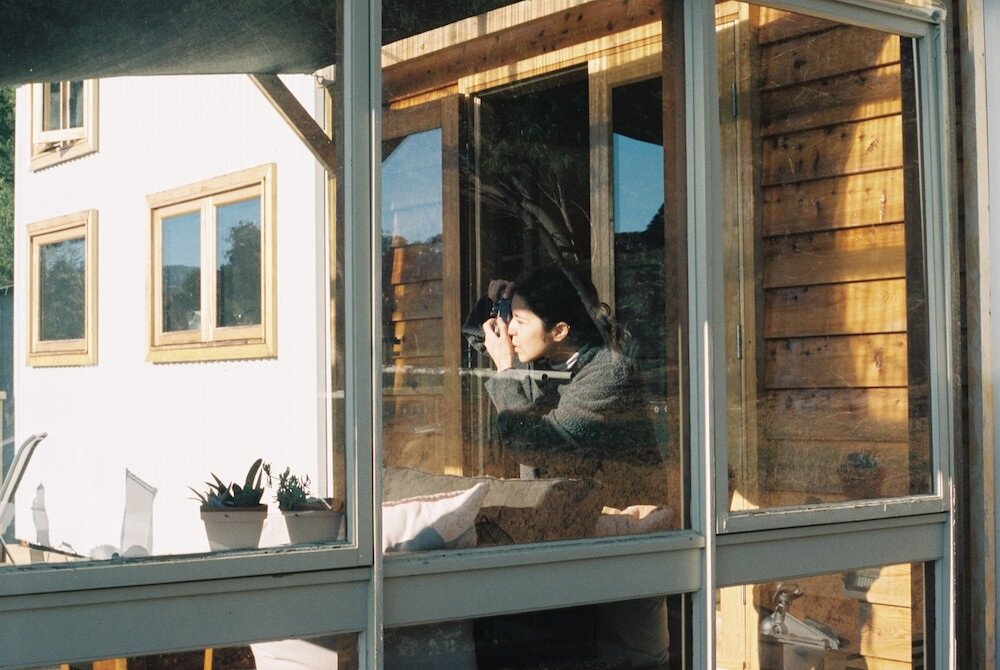The Head Chef Who Lives in a Tiny Home
Mark Ebbels.
Photos by Kimberly K. Canales-Ascui
Mark Ebbels is the new head chef at TarraWarra Estate, filling the menu with whatever is growing in the restaurant’s quarter-acre kitchen garden. He lives in a tiny home that he built with his wife Jo, opting for a lifestyle without the wasteful trimmings. Photographer Kimberly K. Canales-Ascui spent a morning with Mark, capturing the aesthetics of sustainable living, cooking and eating.
"It's very deceptive when you're building a tiny home. You kind of stand on the frame without the walls and the roof and you kind of go "oh shit!" But it's really liveable and it's actually a very efficient kitchen because everything is within arm's length. The only thing is that because it's a thoroughfare you have to communicate well. But that's the whole thing about living in a tiny house. It makes you much more conscious about the people around you. Everything you do impacts someone else, it's not like we have our own rooms. If you leave stuff lying all over the stairs then whoever comes down from the loft has to deal with it. After a couple of years it has a bit of a knock-on effect. It's there everywhere you go and in everything that you do."
– Mark Ebbels
"My grandparents, on both sides, grew their own veg and cooked their own food. That was just sort of the way we grew up. But I don't think that's necessarily unique, for that era, in the 80s and 90s. The farm I grew up on was a vegetable farm. The family farm is actually just over there, behind that gum tree."
– Mark Ebbels.
"All the stuff that we eat here is kind of dictated by the garden and what's in season. It's the same with the restaurant."
– Mark Ebbels
"[Working at The Fat Duck] was a life changing experience. Well, career changing and life changing. I left Australia and eventually went to England and just applied for all the three-hatted restaurants and the Fat Duck said that they'd give me a stage. So I did that for a month and just towards the end of that month the head of creativity and development came downstairs, into the prep house, and was like "Does anybody want a job?" And I was like "Yep." There were nine other people in there and no one said anything. But I thought he meant, you know, to go and pick some elderflower or something because they were in season at the time. I thought it was a task that he needed done. So I was like yeah I'll get out of picking 30 kilograms of parsley. What he meant was, yeah, an actual job job [laughs]."
– Mark Ebbels.
"It really makes you kind of cut down on what you've got. Well, having said that, the shed outside is full of shit."
– Mark Ebbels
"The toilet is a composting toilet. It's an experience that everyone should go through in their lives, dealing with their own waste."
– Mark Ebbels
"I don't know if [living in a tiny home] is necessarily experimental but in a way it is I suppose because we've never done it before. We're just trying it and seeing how far we can go. We talk about it constantly: the things that we need to change, the things that we don't really need, the things that it would be great if we could get rid of them. At the moment, even though we have lived in this house for a couple of years, it's still very much about minimising the stuff that we've got, the stuff that we would probably be better off without and, you know, the stuff that's kind of not worth the impact it's having."
– Mark Ebbels.
Entering TarraWarra Estate.
"I feel very lucky to be working at TarraWarra actually. They're very proud of the sustainability aspect of the business and management is a bit hands-off in a sense, they're kind of letting me follow what I feel is right for the kitchen, specifically the menu, which is great. To have that freedom and that support is really nice. I think for us going forward, we've kind of established what we want to do and what our core values. We create delicious food that is considerate, approachable and interesting. Now it's really just about evolving that vision."
– Mark Ebbels
"For us in the kitchen, the big picture is really to continue to evolve the values we hold as a kitchen, to continue to absorb information and make educated decisions about what we do as humans to create a product that we are really proud of, and hopefully that translates through to the people who dine here."
– Mat Ebbels
"Before climate change was really acknowledged, chefs worried about the monetary cost of the food and how delicious they could make it within those constraints. Now it’s apparent that to positively affect the situation there is another layer of constraints that come under the label of sustainability that a lot of people feel is important (for obvious reasons). However, there are still a lot of people that see it as just a buzzword and not a serious issue. So, for a chef in the age of climate emergency, it is a huge opportunity to do something good by trying to make considerate and informed decisions."
– Mark Ebbels
The greenhouse in Mark’s home veggie garden.
TarraWarra’s greenhouse. The nasturtiums naturally deter pests.


























